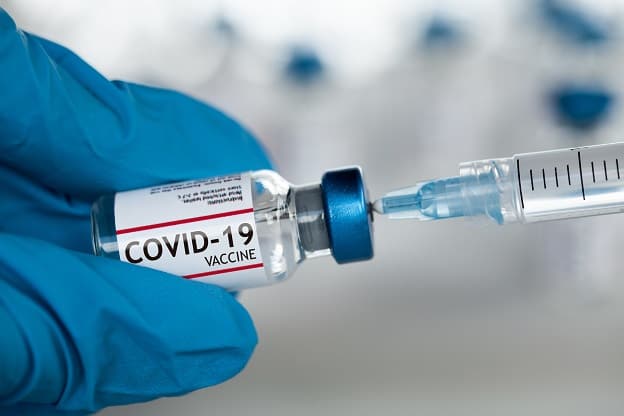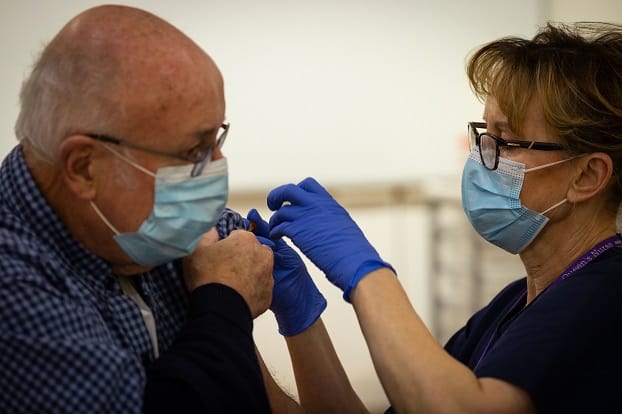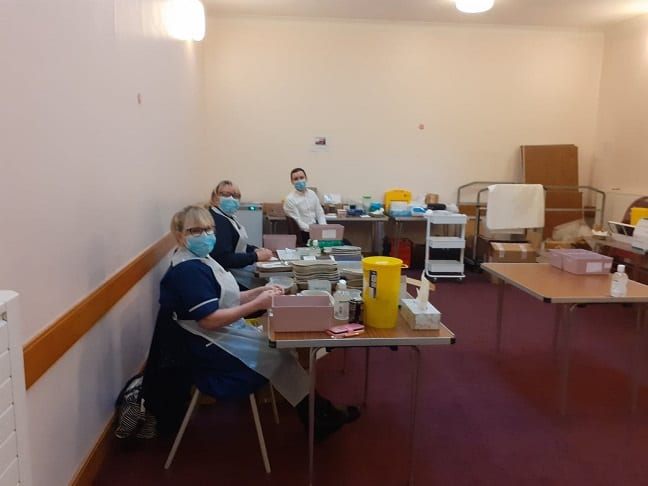
Positive covid rates in Thanet are now at their lowest level since the end of October.
The government coronavirus dashboard shows a positive case rate of 158.5 per 100,000 people as of February 6 – below the UK average of 183.5.
For Thanet this is a drop in the seven day rolling rate of just over 54% on the previous week and a massive decrease on rates on December 20 which stood at 639 per 100,000.
As of February 9 there were 178 people with covid being cared for in East Kent hospitals. Of these 28 are on ventilation.
A year since the pandemic hit the UK, there is finally light at the end of the tunnel with a huge vaccination programme underway. Yesterday (February 10) Prime Minister Boris Johnson said the aim is for all those in the top nine groups to be vaccinated by the end of April.
Across the UK people vaccinated up to and including 10 February were:
First dose: 13,509,108
Second dose: 524,447
In Kent and Medway there have been 370,289 vaccines given as of February 7:
First dose
over 80 years 88,794
75-79 years 64,836
70-74 years 68,334
under 70 years 124,823
Second dose
over 80 years 16,377
75-79 years 278
70-74 years 203
under 70 years 6,644

Anyone aged 70 and over or on the Shielded Patients List (because they are clinically extremely vulnerable) who has not yet had a first dose vaccine can use the national booking system to book an appointment. You do not need a letter from the NHS. Members of the public not in these groups still need to wait for a letter.
You can book for yourself or on behalf of a relative. The person being vaccinated will need to be registered with a GP. You’ll need the name, date of birth and home postcode of the person being vaccinated. The person’s NHS number is helpful but not essential.
Book online at www.nhs.uk/conditions/coronavirus-covid-19/coronavirus-vaccination/book-coronavirus-vaccination/
If you can’t book online, you can call 119 free of charge, anytime between 7am and 11pm seven-days-a-week. British Sign Language, text relay and interpreter services are available.

The national booking service cannot make appointments for GP services or home visits. GPs and their teams continue to invite people to local vaccination services and are prioritising going out to housebound patients who haven’t already been vaccinated.
If people over 70 or clinically extremely vulnerable, who have not yet had a first dose Covid-19 vaccine, want to use GP services they should now contact their GP practice. Members of the public not in these groups still need to wait to be contacted.
Given the evidence of Covid-19 inequalities increasing deaths amongst people with learning disabilities, the NHS in Kent and Medway has agreed to prioritise vaccinating the 9,500 people on GP learning disability registers.
Residents of care homes for people with learning disabilities are being vaccinated and those living independently or with family will be contacted via their GP service. The Community Learning Disability Nursing Team is providing a service to vaccinate adults with learning disabilities who are not able to attend a GP vaccine site.
Variants
There are four ‘variants of concern’ of the virus – where it has mutated, Three of these have been found in the UK, with the variant which originated in Kent the most wide sweeping since it was first identified in September.
The government is using surge testing and genomic sequencing to: monitor and suppress the spread of coronavirus and better understand new variants. Surveillance of the virus identified a small number of cases of the COVID-19 variant first identified in South Africa in localities across England, that cannot be traced back to international travel. Surge testing (door to door) was used in areas where this was identified.
This week Secretary of State for Health Matt Hancock said the evidence is that the existing vaccines have some effect against new variants particularly preventing serious illness and mortality.
He added: “We’re working with the existing vaccine suppliers on potential booster jabs, targeted specifically at the new variants, to strengthen this protection further. We’re building on-shore UK capacity, including cutting edge mRNA technologies to give us the ability rapidly to develop and deploy vaccines against any new variants, or similar new diseases, in the future.
“We’ve entered into a new partnership with the vaccine manufacturer CureVac to develop vaccines that can be quickly adapted as new strains are identified just as we do for the flu vaccine every year.”

